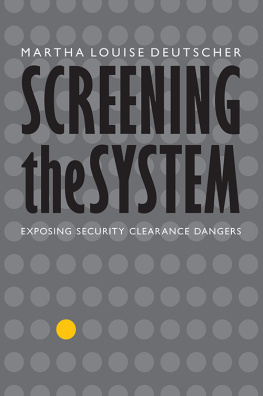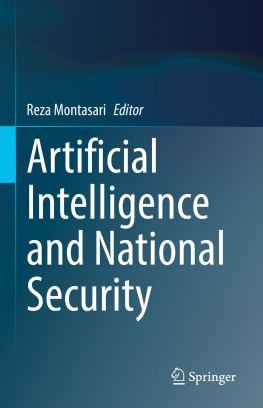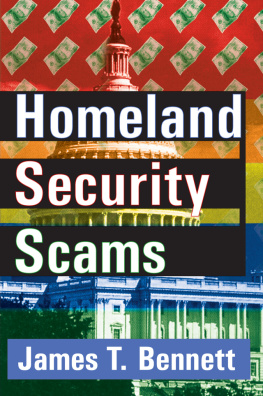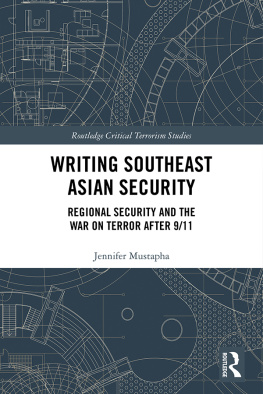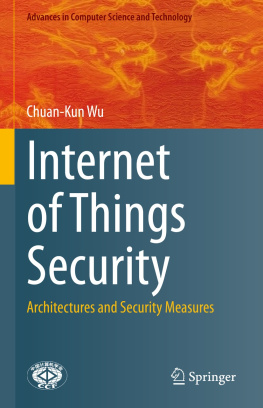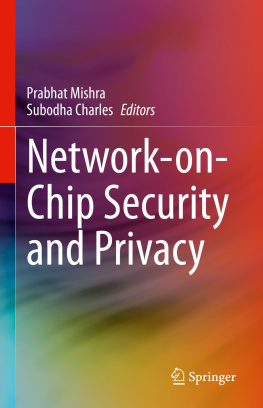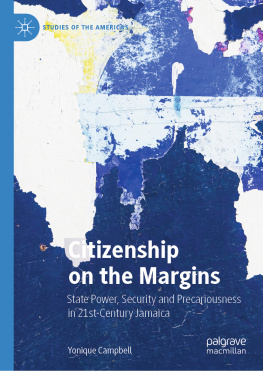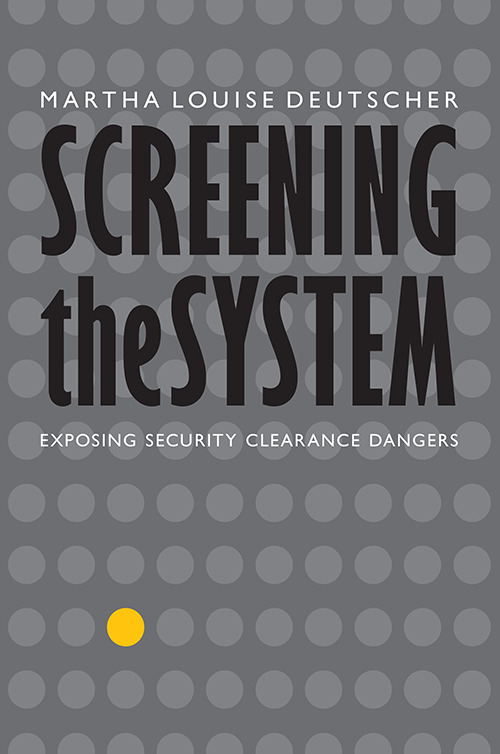Martha Louise Deutscher - Screening the System: Exposing Security Clearance Dangers
Here you can read online Martha Louise Deutscher - Screening the System: Exposing Security Clearance Dangers full text of the book (entire story) in english for free. Download pdf and epub, get meaning, cover and reviews about this ebook. year: 2017, publisher: Potomac Books, genre: Politics. Description of the work, (preface) as well as reviews are available. Best literature library LitArk.com created for fans of good reading and offers a wide selection of genres:
Romance novel
Science fiction
Adventure
Detective
Science
History
Home and family
Prose
Art
Politics
Computer
Non-fiction
Religion
Business
Children
Humor
Choose a favorite category and find really read worthwhile books. Enjoy immersion in the world of imagination, feel the emotions of the characters or learn something new for yourself, make an fascinating discovery.
- Book:Screening the System: Exposing Security Clearance Dangers
- Author:
- Publisher:Potomac Books
- Genre:
- Year:2017
- Rating:4 / 5
- Favourites:Add to favourites
- Your mark:
Screening the System: Exposing Security Clearance Dangers: summary, description and annotation
We offer to read an annotation, description, summary or preface (depends on what the author of the book "Screening the System: Exposing Security Clearance Dangers" wrote himself). If you haven't found the necessary information about the book — write in the comments, we will try to find it.
The Personnel Security Clearance Systemthe process by which the federal government incorporates individuals into secret national-security workis flawed. Aftertwenty-threeyears of federal service, Martha Louise Deutscher explores the current system and the amount of power afforded to the state incontrastto that afforded to those who serve it. Deutschers timely examination of the U.S.screening system shows how security clearance practices, including everything from background checks and fingerprinting to urinalysis and the polygraph, shape and transform those individuals who are subject to them. By bringing participants testimonies to light, Deutscher looks at the efficacy of various practices while extracting revealing cultural insights into the way we think about privacy, national security, patriotism, and the state. In addition to exposing the stark realities of a system that is in critical need of rethinking, Screening the System provides recommendations for a more effective method that will be of interest to military and government professionals as well as policymakers and planners who work in support of U.S. national security.
Martha Louise Deutscher: author's other books
Who wrote Screening the System: Exposing Security Clearance Dangers? Find out the surname, the name of the author of the book and a list of all author's works by series.

